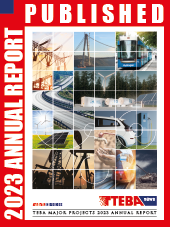1/10/2017
Moody’s: “A Worsening in Asset Quality is Expected in 2017 in the Turkish Banking Sector”
“The rise in inflation and price increases in import goods may negatively affect the back-payment power of debts by households, and this may in return affect the asset quality of banks in their consumer loan portfolio.”
Economy Advisor of the President of the Republic Gedikli: “Do they want to tell the banks to recall credits and to jeopardize the tradesmen? Our banks will not do such a thing during national mobilization.”
Deputy Prime Minister Canikli: “The capital adequacy ratio in the banking system is not below 12 percent even in the worst downgrading scenario of Fitch. A deterioration in the asset structure of the banking system will not be permitted. Turkey has seen the trough in 2016 in all aspects, we are now recovering from there.”
International credit rating agency Moody’s assessed the outlook of Turkish banks for the year 2017 in the report titled “Credit Outlook”. Moody’s expecting a worsening in the asset quality of the Turkish banking system this year, made the forecast that bank profits will be hit significantly this year by increased non-performing loans. Moody’s expecting gross non-performing loans to be above 4 percent by the end of the year, stated that this would require increased provisioning expenses and would reduce banks' profitability. It is also stated in the report that security issues in Turkey will worsen macroeconomic tensions. The report is quoted as follows commenting on the latest developments in Turkey: “Local and geopolitical risks that arose by terrorist attacks in recent months accelerated capital outflows and made a contribution to the loss of value in the currency particularly since the beginning of November.” It is stated in the report that the rise in inflation and price increases in import goods may negatively affect the back-payment power of debts by households, and this may in return affect the asset quality of banks in their consumer loan portfolio. The report pointing out that the asset quality of Turkish banks are subject to difficulties that arose from the present stagnation in the economy, also stating that the ratio of non-performing loans increased to 3.24 percent in November last year from a level of 3 percent recorded at the end of 2015. The report is quoted as follows: “We expect asset quality trends to worsen in this year, driven by the combination of high inflation, lira depreciation and the general worsening of the investment climate because of security issues and geopolitical tensions. We expect gross non-performing loans to be above 4 percent by the end of the year. This will require increased provisioning expenses and will reduce banks' profitability.” The report also includes the following statement: “This is a negative factor for banks… Turkish Statistical Institute (TÜİK) disclosed that the Consumer Price Index (CPI) displayed an increase of 1.64 percent in December. The annual inflation rate of 8.53 percent increased over the targeted value of 5 percent foreseen by the Central Bank of the Turkish Republic”. Economy Advisor of the President of the Republic Gedikli: “Do they want to tell the banks to recall credits?” On the other hand, Bülent Gedikli, one of the economy advisors of President of the Republic Recep Tayyip Erdoğan reacted to the report on Turkish banks and said, “Moody’s has once again prophesized negatively but it does not fit to the Turkish economy and the banking reality. Do they want to tell the banks to recall credits and to jeopardize the tradesmen? Our banks will not do such a thing during national mobilization.” Deputy Prime Minister Canikli: “The probability of the worsening of the asset quality of the banking sector is zero” Deputy Prime Minister Nurettin Canikli has also commented on the Moody’s Report. Canikli said, “The probability of the worsening of the asset quality of the banking sector is zero. We are presently talking of a volume of TL 40 billion which has been demanded for a re-structuring of debts to banks. The capital adequacy ratio in the banking system is not below 12 percent even in the worst downgrading scenario of Fitch. A deterioration in the asset structure of the banking system will not be permitted.” Canikli making the statement, “There has been a trend in recent months in postponing demands which is not very strong but will also not be permanent”, said “It is a natural reflex that the household will delay certain demands when so many incidents are happening; we do not foresee a continuation of this but a number of steps have been taken to compensate for possible decline. Turkey has seen the trough in 2016 in all aspects, we are now recovering from there”.
Annual Report
